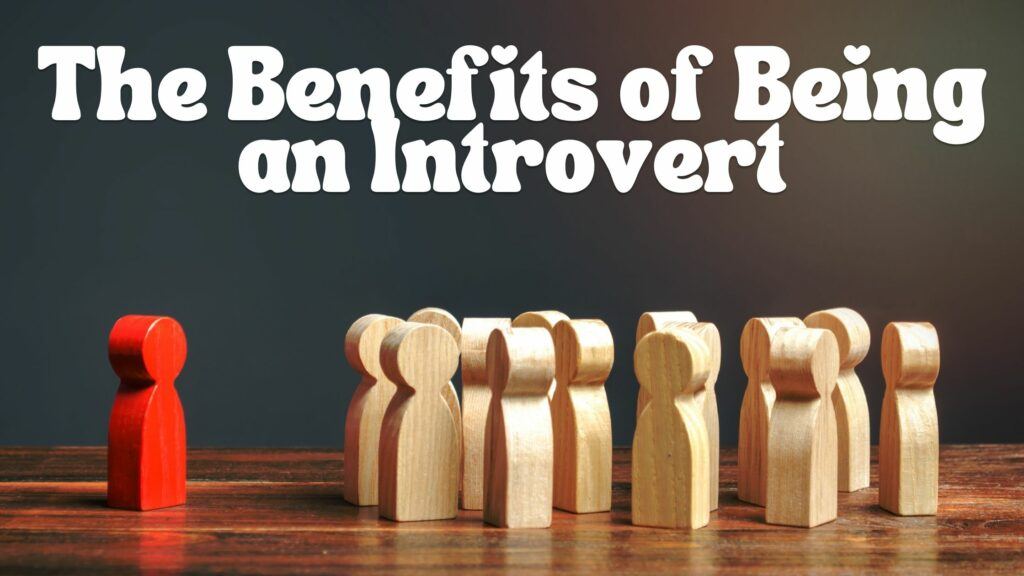
Social development is a multifaceted concept that significantly influences our lives and society. It encompasses how individuals learn to interact with others, understand societal norms, and develop the skills to form relationships and contribute positively to their communities. While introverts may approach social development differently, it is equally essential for personal growth, mental well-being, and career success.
This article will explore why social development is essential, particularly for introverts, and how it contributes to personal and societal progress. We’ll also discuss practical strategies for fostering social development and recommend some products to aid this journey.
Understanding Social Development
What is Social Development?
Social development refers to the process by which individuals acquire the skills, knowledge, and behaviours necessary to interact effectively with others and navigate social environments. It involves learning to communicate, collaborate, and empathize with others and understanding social norms and cultural differences.
Social development is not a static process; it evolves as individuals progress through different life stages. From early childhood, where basic social skills are learned through play and family interactions, to adulthood, where more complex social dynamics in work and community settings are navigated, social development is a lifelong journey.

The Role of Social Development in Personal Growth
Personal growth is closely tied to social development. As we interact with others, we gain insights into different perspectives, broadening our understanding of the world. Social development also helps build self-esteem, as positive interactions reinforce our sense of belonging and competence.
While social development can present challenges for introverts, who may naturally feel more comfortable in solitary activities or small, familiar groups, these challenges make social development crucial for introverts. Acknowledging these challenges can help introverts step out of their comfort zones and develop a more prosperous, fulfilling social life.
Why Social Development is Crucial for Introverts
Overcoming Social Anxiety
Social anxiety is a common challenge among introverts, often manifesting as a fear of being judged or misunderstood in social situations. This anxiety can lead to avoidance behaviours, where individuals shy away from social interactions altogether, further reinforcing feelings of isolation.
Social development is essential in overcoming these challenges, as it gradually builds confidence in social settings. Techniques such as mindfulness, cognitive-behavioural therapy (CBT), and exposure therapy can be incredibly beneficial. These approaches help individuals recognize and challenge their negative thoughts about social situations, allowing them to engage more fully with others.

Building Meaningful Relationships
While introverts may prefer solitude, the value of building meaningful relationships cannot be overstated. These relationships are vital for emotional support and mental well-being. Social development helps introverts understand how to connect deeply with others, even in a world that often values extroversion.
Meaningful relationships are not necessarily about quantity but about quality. Introverts may find fulfilment in forming a few deep, meaningful connections rather than a large number of superficial ones. Social development fosters these connections by encouraging active listening, empathy, and vulnerability.

Enhancing Emotional Intelligence
Emotional intelligence (EI) is a powerful tool for introverts. It is the ability to understand and manage one’s emotions and recognize the emotions of others. For introverts, developing EI through social experiences is crucial, as it helps them manage social interactions more effectively and reduce stress in social situations.
High emotional intelligence allows introverts to navigate social interactions with greater ease. They can better understand their emotional responses and those of others, leading to more positive and less stressful social experiences. This skill is precious in conflict resolution, where understanding and addressing the emotions of all parties involved can lead to more harmonious outcomes.
Moreover, enhanced emotional intelligence can contribute to better leadership skills. Introverts who might not naturally seek out leadership roles can still become influential leaders by leveraging their strong listening skills, empathy, and thoughtful decision-making.
The Broader Impact of Social Development
Community Building
Social development extends beyond the individual; it is foundational to building strong, cohesive communities. Individuals with well-developed social skills are better equipped to collaborate, lead, and support others, strengthening community ties and fostering a sense of collective responsibility. For example, a community project that brings together people from diverse backgrounds requires participants to communicate effectively, work collaboratively, and resolve conflicts. Social development equips individuals with the necessary skills to contribute positively to such initiatives, leading to more successful and impactful outcomes.
For example, a community project that brings together people from diverse backgrounds requires participants to communicate effectively, work collaboratively, and resolve conflicts. Social development equips individuals with the necessary skills to contribute positively to such initiatives, leading to more successful and impactful outcomes.

Economic Development
Economically, social development contributes to a more productive workforce. Employees with strong social skills are often more collaborative, adaptable, and capable of navigating workplace dynamics. This, in turn, can lead to increased innovation and productivity within organizations. Socially adept employees are better equipped to work well in teams, communicate effectively across departments, and contribute to a positive organizational culture. Companies that prioritize social development through training and team-building activities often see improvements in employee morale, creativity, and overall performance.
In the workplace, social development manifests as working well in teams, communicating effectively across departments, and contributing to a positive organizational culture. Companies that prioritize social development through training and team-building activities often see improvements in employee morale, creativity, and overall performance.
Promoting Inclusivity and Diversity
Social development also plays a critical role in promoting inclusivity and diversity. By understanding and respecting different cultures, traditions, and perspectives, individuals contribute to a more inclusive society where diversity is valued and celebrated.
Inclusivity is about acknowledging differences and actively embracing and integrating diverse perspectives into decision-making processes. Social development encourages this by fostering empathy, open-mindedness, and a willingness to learn from others.
For instance, in educational settings, teachers who emphasize social development are better able to create inclusive classrooms where all students feel valued and supported. This benefits individual students and enhances the learning environment as a whole.

Practical Strategies for Enhancing Social Development
Online Courses and Workshops
In today’s digital age, numerous online courses and workshops are designed to enhance social skills. Platforms like Udemy, Coursera, and LinkedIn Learning offer courses on communication, emotional intelligence, and leadership.
These courses provide structured learning paths that allow introverts to develop social skills at their own pace, in the comfort of their own homes. Topics such as public speaking, conflict resolution, and negotiation are often covered, providing practical tools that can be applied in real-world situations.
Books and Self-Help Guides
Books are an excellent resource for introverts looking to develop their social skills. Titles such as “Quiet: The Power of Introverts in a World That Can’t Stop Talking” by Susan Cain offer valuable insights and strategies tailored specifically for introverts.
These books often provide a blend of research-based insights and practical advice, helping readers understand the unique strengths of introverts and how to leverage them in social situations. Other notable titles include “The Introvert Advantage” by Marti Olsen Laney, which explores how introverts can thrive in an extroverted world.
Recommended Product: Quiet: The Power of Introverts in a World That Can’t Stop Talking
Social Skill-Building Tools and Apps
Various apps and tools are also designed to help individuals track and improve their social interactions. Apps like Meetup can help introverts find social events that align with their interests, while tools like journaling apps can help them reflect on social experiences and identify areas for improvement.
For example, the Meetup app allows users to join groups based on shared interests, making it easier for introverts to find like-minded individuals and engage in social activities that they find genuinely enjoyable. Similarly, journaling apps like Daylio can help users track their moods and social interactions, offering insights into how different activities impact their social well-being.
Recommended Products for Supporting Social Development
To assist in your journey towards better social development, here are some recommended products that you can find on Amazon:
Books for Building Social Skills
-
- How to Win Friends and Influence People by Dale Carnegie: A timeless classic that offers practical advice on navigating social interactions effectively.
- The Social Skills Guidebook by Chris MacLeod: A comprehensive guide to understanding and improving social skills.
Online Courses and Platforms
-
- Udemy’s Master Your Communication Skills course: A practical course designed to improve your communication abilities in personal and professional settings.
- LinkedIn Learning’s Building Rapport in a Remote Environment course is perfect for working remotely but still wanting to develop strong social connections.
Tools for Tracking and Enhancing Social Interactions
-
- Daylio Journal: An app that helps you track your mood and social interactions, providing insights into how different activities affect your social well-being.
- Happify: An app that offers science-based activities and games to help you build social and emotional resilience.
Conclusion
Social development is a vital aspect of personal and societal growth. For introverts, it offers a pathway to overcoming social anxiety, building meaningful relationships, and enhancing emotional intelligence. Moreover, social development is crucial in community building, economic development, and promoting inclusivity.
By leveraging resources like online courses, books, and apps, introverts can take meaningful steps towards improving their social skills in a way that aligns with their natural preferences. Remember, social development is not about changing who you are but enriching your life by learning to engage with others more effectively and confidently.

Thank you for your time, and I hope you found this article helpful; if you have any questions about it, please leave a comment below or feel free to reach out to me on contact us! Page. Have a great day!




Thank you for this insightful article! I really appreciate the way you emphasize the importance of social development, even for introverts who may find it challenging at times. I agree that building social skills can lead to personal growth and better relationships, regardless of personality type.
One question I have is: How can introverts balance the need for social development with their natural preference for solitude? It seems like a fine line between pushing ourselves to grow socially and avoiding burnout from too much interaction. I’d love to hear your perspective on managing that balance!
Hi
Thank you so much for your kind words and thoughtful questions! I’m glad you found the article helpful and that the emphasis on social development for introverts resonated with you.
You bring up an important point about balancing social development with the need for solitude. It can indeed be a delicate balance for introverts, and the key is finding a rhythm that works personally. One effective strategy is to practice intentional socialization—being selective about the social interactions you engage in and ensuring they align with your values and interests. This approach can make social interactions more meaningful and less draining.
It’s also helpful to schedule regular “recharge” time between social activities. For example, if you have a social event or meeting, plan downtime to relax, reflect, or engage in solitary activities that rejuvenate you. That way, you can enjoy social interactions without reaching the point of burnout.
Setting boundaries is another crucial part of this balance. It’s okay to say no to activities that feel overwhelming or too frequent. Gradual exposure to social situations, where you push your limits but still respect your need for alone time, can foster growth without the risk of exhaustion.
Ultimately, it’s about understanding and honoring your energy levels while allowing space for growth. Growth doesn’t mean abandoning what makes you feel comfortable but expanding your capacity at your own pace.
Thanks again for your insightful question! I’m sure many in our community would benefit from hearing how you manage that balance in your own life. Please, share your experience.
Vlad
Hey Vlad,
Thank you for this insightful and thorough exploration of social development, especially as it pertains to introverts. Your article highlights the critical role that social skills play not just in personal growth but in broader societal and economic contexts. I particularly appreciate how you’ve addressed the unique challenges faced by introverts and provided practical strategies to overcome them.
Social development indeed impacts many facets of life, from building meaningful relationships to enhancing career prospects and contributing to community well-being. Your emphasis on practical tools, such as online courses and self-help books, provides valuable resources for those looking to improve their social skills in a way that suits their personal comfort levels.
Of particular interest to me was the referenced books. The title, Quiet: The Power of Introverts in a World That Can’t Stop Talking, called out to me. I’m somewhat of an introvert myself I think, and this looks like a great read.
Questions:
In what ways do you think emerging technologies, like AI and virtual reality, might further influence social development, particularly for introverts who may find these tools both challenging and advantageous?
How can educators and employers better integrate social development strategies into their programs to support introverts and help them thrive in various social and professional settings?
Looking forward to hearing more about your thoughts on these topics!
Hi
Thank you so much for your thoughtful feedback! I’m happy you found the article helpful, especially the practical strategies and book recommendations like Quiet: The Power of Introverts in a World That Can’t Stop Talking. It’s a fantastic read and offers significant insights into how introverts can thrive in an extroverted world.
To address your excellent questions:
AI and virtual reality (VR) are fascinating tools for social development, especially for introverts. These technologies can create controlled, low-pressure environments where introverts can practice social interactions and build confidence at their own pace. For example, VR platforms offer simulated social scenarios that allow individuals to practice public speaking or networking without the immediate anxiety of face-to-face interactions. AI-powered chatbots and virtual assistants could also help introverts ease into social conversations by providing real-time feedback and conversational prompts. However, the challenge lies in ensuring that these tools are not substitutes for real human interaction but stepping stones toward more meaningful in-person engagements.
Educators and employers play a crucial and valued role in creating environments where introverts can thrive. In education, integrating social development strategies can start with promoting collaborative learning while providing space for individual reflection; combining group projects with independent tasks can balance introverted students’ strengths. For employers, offering flexible work environments, such as remote or hybrid options, can reduce social exhaustion, while structured team-building activities or mentorship programs can encourage gradual social integration. Tailoring development programs that respect personal boundaries while offering opportunities for growth can significantly enhance both confidence and performance for introverts.
I appreciate your thought-provoking questions and your engagement. Your experiences and insights are invaluable, and I look forward to continuing this conversation and learning more from you!
Best regards,
Vlad
hi, social development plays a crucial role in shaping both personal and professional growth, especially for introverts who might naturally find social interactions challenging. This article emphasizes the importance of developing social skills even for those who may prefer solitude. but how does social development contribute to the personal and professional growth of introverts, according to the perspectives shared in the article ‘Why Social Development is Important’?
Hi
Thank you for your insightful comment! Social development plays a significant role in shaping personal and professional growth, especially for introverts. In the article ‘Why Social Development is Important,’ we explore how social development helps introverts overcome challenges related to social anxiety and build meaningful relationships, which are vital to personal growth.
On the professional side, developing social skills enhances communication, emotional intelligence, and networking abilities—crucial for career advancement, even for those who naturally prefer solitude. Social development enables introverts to navigate workplace dynamics, collaborate more effectively, and potentially take on leadership roles by leveraging their thoughtful and empathetic nature.
By stepping out of their comfort zones and gradually improving their social skills, introverts can experience both personal fulfillment and professional success, while still honoring their need for quiet and reflection. This is the essence of the article ‘Why Social Development is Important.’
Thanks again for engaging with the article!
Best regards,
Social development is important to me because it shapes the very fabric of our communities and influences individual growth. Throughout my life, I have witnessed firsthand how meaningful connections can foster resilience, empathy, and cooperation among people. In a world often marked by division and isolation, nurturing social skills is vital for building bridges across cultural and ideological divides. Our ability to communicate effectively, work collaboratively, and resolve conflicts determines not just personal success but also the overall health of society.
Thank you so much for sharing your perspective. I agree with you—social development is the foundation of our communities and personal growth. Your insights on how meaningful connections foster resilience, empathy, and cooperation resonate deeply with me. In today’s world, where division and isolation can seem pervasive, nurturing these social skills is more critical than ever. It’s inspiring to hear firsthand how you’ve witnessed social development’s positive impact. By emphasizing the importance of communication, collaboration, and conflict resolution, we can contribute to building a healthier and more connected society.